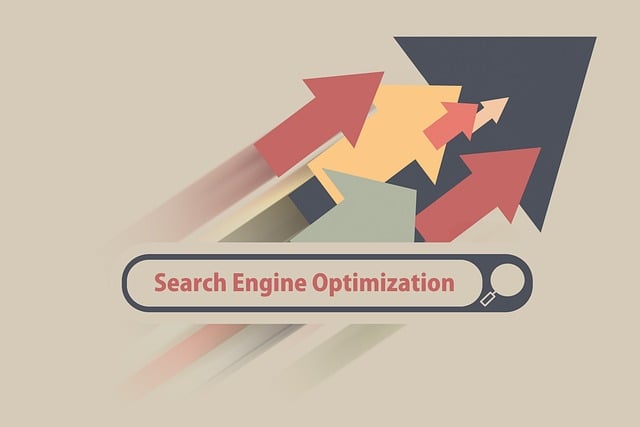Off-Page SEO is a strategic approach that focuses on external factors influencing search engine rankings, including backlinks, social media interactions, online reviews, and brand authority. High-quality backlinks from reputable sources enhance website credibility and authority, while social media engagement boosts visibility and drives traffic. Guest blogging expands reach and earns backlinks, influencer collaborations build trust, and online reputation management shapes brand perception. Analyzing competitors' Off-Page SEO tactics helps stay ahead in search engine rankings by identifying valuable backlink opportunities and content ideas.
Off-Page SEO is a powerful strategy that drives search engine rankings by focusing on external factors. This article delves into the key techniques that can significantly boost your online visibility. We explore understanding off-page SEO, the art of high-quality backlink building, guest blogging for leverage, social media’s impact on rankings, influencer collaborations, and reputation management. By analyzing competitors’ strategies, you can gain insights to make informed decisions in the dynamic world of Off-Page SEO.
Understanding Off-Page SEO: The External Factors

Off-Page SEO refers to external factors that impact a website’s search engine rankings. It involves activities outside of your direct control but are crucial in shaping how search engines perceive and rank your site. These external signals include backlinks, social media mentions, online reviews, and brand authority.
Backlinks, or incoming links from other websites, are a key component as they act as votes of confidence in the eyes of search engines. The quality and quantity of these links play a significant role in determining a website’s authority and relevance. Social media interactions and mentions also contribute to Off-Page SEO by increasing brand visibility and potentially driving traffic to your site. Positive online reviews can enhance local SEO, while building a strong brand over time can establish authority and trustworthiness.
High-Quality Backlink Building: A Cornerstone Strategy

Off-Page SEO is a strategic approach that focuses on activities outside your website to enhance its search engine rankings. High-quality backlink building stands as one of the most influential and cornerstone strategies within this realm. Earning backlinks from reputable, relevant websites acts as a vote of confidence in your site’s credibility and authority. Search engines like Google use these links as signals to assess the quality and relevance of your content.
Building high-quality backlinks requires a meticulous process. It involves identifying industry-related websites with strong domain authority, creating compelling content that naturally attracts links, and reaching out to webmasters for guest posting or collaboration opportunities. The strategy emphasizes the importance of diversity in link sources and anchor texts to avoid appearing manipulative in the eyes of search engines.
Guest Blogging: Leveraging External Platforms

Guest blogging is a powerful off-page SEO technique that involves contributing high-quality content to reputable websites in your industry. By writing for external platforms, you can reach a broader audience and tap into new networks while establishing yourself as an expert in your field. When done right, guest blogging allows you to earn backlinks from authoritative sources, which significantly boost your website’s credibility and search engine rankings.
Additionally, this strategy enables you to connect with potential partners, influencers, and customers. Quality guest posts can drive targeted traffic back to your site, fostering meaningful interactions and potentially leading to long-term collaborations. By consistently contributing valuable content to external blogs, you can increase your online visibility and enhance your brand’s reputation, ultimately strengthening your off-page SEO efforts.
Social Media Engagement and Its Impact on Search Rankings

Social media engagement has become an integral part of any successful off-page SEO strategy. Platforms like Twitter, Facebook, and Instagram offer immense potential for businesses to connect with their target audience, build brand awareness, and drive traffic back to their website. By actively participating in online conversations, sharing valuable content, and interacting with followers, brands can significantly impact their search rankings. Positive social media engagement signals to search engines that a site is relevant, popular, and worth featuring higher in search results.
Furthermore, social media platforms act as powerful channels for generating backlinks, which are a critical component of off-page SEO. When users share website content on social media, it increases its visibility and can lead to other websites linking back to it naturally. This process helps improve the site’s authority and enhances its ability to rank higher in search engine results pages (SERPs). Effective use of hashtags, participation in trends, and engaging with influencers can all contribute to enhancing online presence and ultimately driving better organic traffic.
Influencer Collaboration for Enhanced Visibility

Influencer collaboration has emerged as a powerful Off-Page SEO strategy for businesses looking to boost their online visibility. By partnering with relevant influencers in their industry, brands can tap into established audiences and leverage the trust and credibility associated with these individuals. Influencers possess a dedicated fan base that actively engages with their content, making them valuable assets for promoting products or services. When an influencer endorses a brand, it not only exposes the business to new potential customers but also fosters a sense of authenticity, as recommendations from trusted sources carry significant weight.
This collaboration goes beyond mere endorsements; it often involves creating co-branded content that combines the influencer’s unique style with the brand’s messaging. Such initiatives can include sponsored posts, product reviews, unboxing videos, or even live streams where influencers showcase the brand’s offerings. This organic integration helps in promoting the brand without appearing too salesy, thereby enhancing its reputation and search engine rankings over time.
Online Reputation Management: Monitoring and Shaping Your Brand Image

Online Reputation Management plays a pivotal role in Off-Page SEO, as it directly influences how your brand is perceived by search engines and potential customers. It involves monitoring online discussions, reviews, and feedback related to your business across various platforms—social media sites, forums, review websites, and more. By staying vigilant, you can quickly address any negative comments or inaccurate information that might damage your brand image.
Through strategic interventions, you can shape your online reputation. This includes responding to customer queries and complaints in a timely and professional manner, encouraging positive reviews by providing excellent service, and engaging with influencers and industry leaders to boost your brand’s visibility and credibility. By managing your online reputation effectively, you enhance your website’s trustworthiness, which is a key factor in search engine rankings and ultimately drives more organic traffic through Off-Page SEO efforts.
Analyzing Competitors' Off-Page Strategies for Informed Decisions

When it comes to Off-Page SEO, understanding your competitors’ strategies is invaluable. By analyzing their backlink profiles, social media engagement, and guest blogging activities, you can gain insights into what works in your industry. This competitive analysis allows for informed decision-making about which off-page tactics to prioritize.
Identifying high-quality backlinks that your rivals have secured can help you replicate successful strategies. Additionally, studying their social media presence and the types of content they share can inspire unique ideas to enhance your own Off-Page SEO efforts. This strategic approach ensures that you stay ahead in search engine rankings by learning from both direct competitors and niche influencers.
